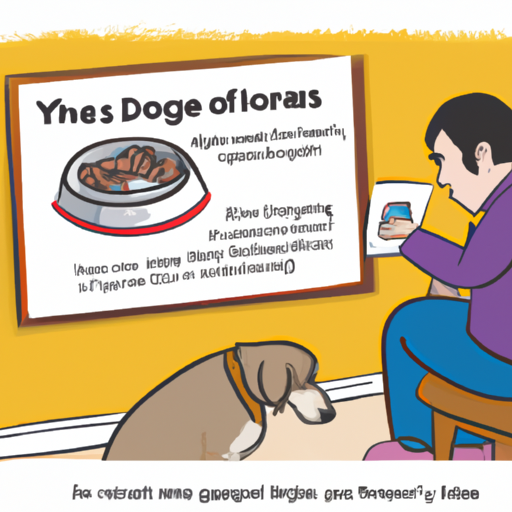There’s no sight or sound that can get a dog owner more worried than seeing their treasured pet hunched over, making those tell-tale retching sounds. It’s even more worrisome when it happens after mealtime. This article will explore the reasons behind why dogs throw up after eating and offer insights into how you can help your furry friend.
Table of Contents
1. Understanding Vomiting in Dogs
2. Reasons Dogs Throw Up After Eating
3. Tips to Prevent Your Dog from Vomiting
4. When to Seek Veterinary Help
5. Frequently Asked Questions
Key Takeaways
– Vomiting in dogs can be caused by several factors, including eating too quickly, dietary changes, and underlying health conditions.
– Prevention strategies include portion control, slow feeding bowls, and regular vet check-ups.
– Immediate veterinary care is necessary if your dog shows signs of severe illness such as persistent vomiting, lethargy, or blood in vomit.
Understanding Vomiting in Dogs
Vomiting is a common occurrence in dogs and can be triggered by various factors. It’s a natural reflex that allows a dog’s body to expel harmful substances that have been ingested. However, frequent or severe vomiting can signal an underlying health problem that requires attention.
According to the American Kennel Club, a dog’s vomiting can range from the regurgitation of food to throwing up bile. Recognizing the differences in your dog’s vomit can help you understand what’s causing the problem and when to seek veterinary help.
Reasons Dogs Throw Up After Eating
-
Eating too Quickly: Some dogs, especially puppies, have a habit of gobbling down their meals. This can lead to the ingestion of excess air, which can upset the stomach and cause vomiting. Slow feeding bowls from One Top Dog can be a useful tool to curb this behavior.
-
Dietary Changes: Abrupt changes in a dog’s diet can upset their stomach and cause vomiting. Always transition your dog gradually to a new diet.
-
Food Allergies or Intolerance: Some dogs may be allergic or intolerant to certain types of food, leading to vomiting or diarrhea.
-
Underlying Health Conditions: If your dog frequently vomits after eating, it could be a sign of underlying health issues like gastritis, pancreatitis, or even parasites. Regular check-ups with your vet can help prevent such issues.
Tips to Prevent Your Dog from Vomiting
-
Portion Control: Feeding your dog smaller meals throughout the day, rather than one or two large meals, can help prevent vomiting.
-
Slow Feeding Bowls: These bowls are designed to slow down your dog’s eating pace and can be an effective tool to prevent vomiting from eating too quickly.
-
Routine Vet Check-ups: Regular check-ups will ensure that any potential health issues are detected and treated early.
When to Seek Veterinary Help
While occasional vomiting may not be a cause for concern, persistent or severe vomiting should not be ignored. If your dog is repeatedly vomiting, shows signs of lethargy, or if you notice blood in their vomit, seek immediate veterinary care.
Frequently Asked Questions
1. What should I do if my dog throws up after eating?
If it’s a one-time occurrence, it might not be a cause for concern. However, if your dog vomits repeatedly or shows other signs of distress, it’s essential to seek veterinary care.
2. Can exercise cause my dog to vomit after eating?
Yes, exercising too soon after eating can lead to vomiting in dogs. It’s recommended to wait at least an hour after feeding before engaging your dog in vigorous activity.
3. How can I tell if my dog’s vomiting is serious?
Persistent vomiting, blood in the vomit, lethargy, or a sudden change in behavior are all signs that your dog’s vomiting could be serious. It’s best to consult with a vet immediately if you observe any of these signs.
By understanding why your dog may vomit after eating and knowing how to respond, you can ensure your furry friend stays healthy and happy. Remember, while occasional vomiting may not be a cause for alarm, frequent or severe vomiting should never be ignored. Always consult your vet if you have any concerns about your dog’s health. For more pet care tips, check out these articles on dog health, nutrition tips, and common dog diseases on One Top Dog.



